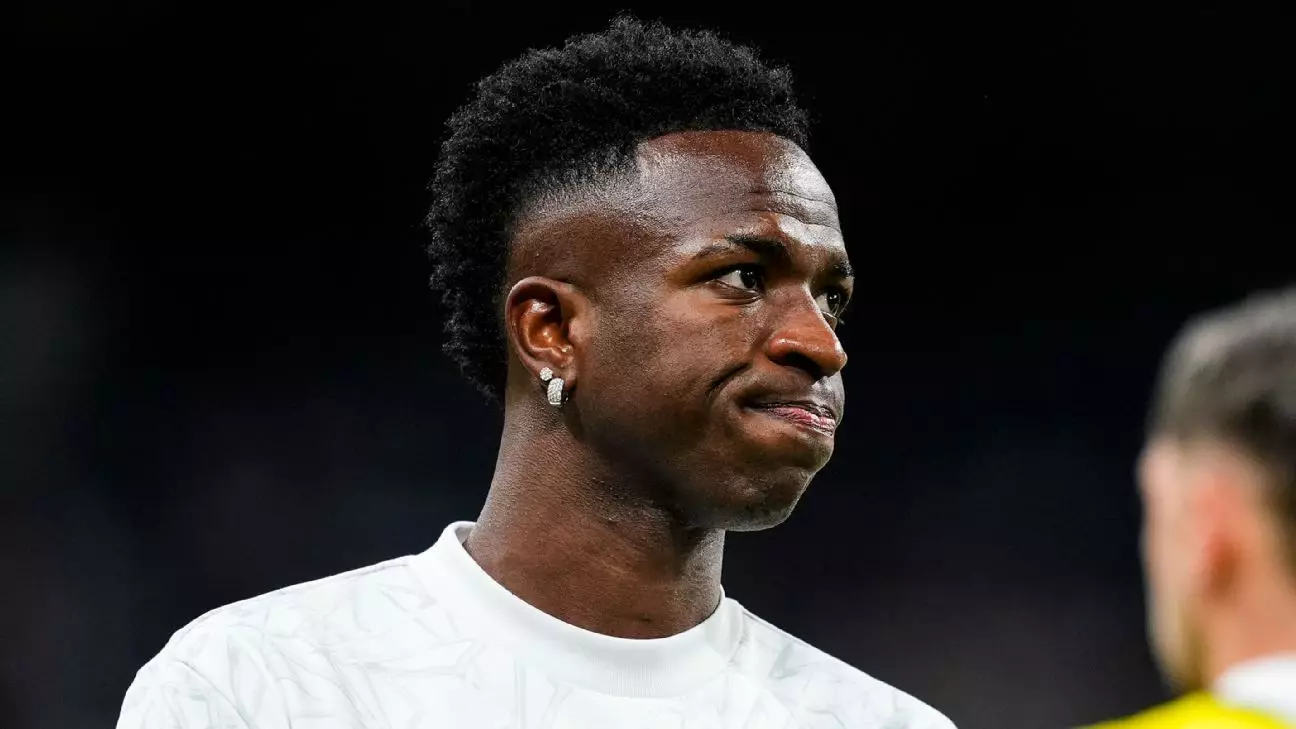The recent announcement of the 2024 men’s Ballon d’Or stirred considerable controversy within the football community, particularly regarding the second-place finish of Vinícius Júnior. The Brazilian winger, widely regarded for his outstanding performance with Real Madrid and the national team, was believed to be a frontrunner for the coveted award. Instead, he found himself edged out by Manchester City’s Rodri, leaving not only Vinícius but many who follow football questioning the award’s fairness and criteria. The disappointment resonated especially given Vinícius’s pivotal role in securing a LaLiga and Champions League double for Real Madrid the previous season.
Vinícius’s case did not go unnoticed by his teammates and fellow professionals. The entire Real Madrid squad expressed their solidarity, showing that the support for Vinícius extended beyond mere camaraderie. Midfielder Eduardo Camavinga took to social media, voicing frustration with the implications of “football politics,” implying that Vinícius’s skill far exceeds any accolade he may or may not receive. His sentiments echoed those of fellow players like Éder Militão and Aurélien Tchouaméni, all emphasizing that the true measure of a player’s greatness cannot simply be distilled into awards.
These reactions spotlight a deep-rooted concern within modern football—the perceived bias that clouds awards-based recognition. Comments about inept criteria and unjust outcomes flood discussion platforms, highlighting that the voting processes for prestigious accolades like the Ballon d’Or tend to provoke debates far more vigorous than those about the actual performances of players.
Vinícius Júnior’s journey in the past season has been nothing short of remarkable. Scoring 24 goals across all competitions, including crucial strikes in the Champions League final, he demonstrated why he is seen as one of the brightest talents in world football. However, his performance at the Copa América, where he struggled to make a notable mark, throws a complex layer into the evaluation of his accomplishments for the Ballon d’Or.
For many supporters, the contrast between his club success and his less successful national team performance muddies the waters of judging a player’s overall impact. It serves as a reminder that while personal accolades are sought after, they often fail to encompass the full story. In an era where collective achievements should be championed, the Ballon d’Or remains a reflection of subjective tastes rather than an accurate portrayal of a player’s contribution throughout the season.
The absence of a Brazilian winner since Kaká in 2007 adds another layer of frustration to the narrative surrounding Vinícius. High-profile names such as Neymar have come close in subsequent years but failed to seize the award. This ongoing drought raises questions about meritocracy in football; is there a bias against certain nationalities, or perhaps a misalignment in how players’ performances are valued across different competitions? Brazil’s rich legacy in football makes it all the more painful for fans to watch their talents fall short of global recognition.
Renowned figures from the Brazilian football scene, including the legendary Marta, voiced their discontent with the outcome. Her passionate remarks encapsulate not just disappointment but a yearning for justice in rewarding excellence one player embodies.
As the dust settles from the Ballon d’Or ceremony, it becomes increasingly apparent that the football community must engage in dialogue about the reasoning and influences behind awarded honors. Vinícius Júnior’s struggles serve as a rallying cry for a reassessment of how players are evaluated and recognized for their contributions to the sport.
In a world where talent is universal but recognition seems subjective and often inconsistent, it is not just about who wins the award; it is about acknowledging the excellence and hard work that brings players like Vinícius to the forefront. As fans and fellow professionals stand in solidarity with him, the message is clear: while awards carry prestige, they should serve as a platform to celebrate brilliance, not diminish it. The narrative surrounding Vinícius must be rewritten, emphasizing his contributions and potential, ensuring he remains center stage as a beacon of excellence in modern football.

